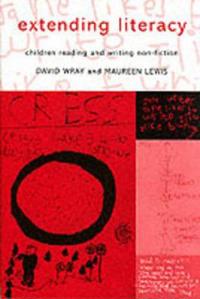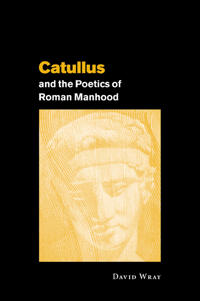Extending Literacy (Häftad)
avDavid Wray, Maureen Lewis
ISBN: 9780415128308 - UTGIVEN: 199702One of the most problematic areas in the teaching and development of literacy appears to concern children's interactions with non-fiction books. Many surveys and reports have commented on the tendency for children to do little more than copy out sections of non-fiction texts. The Exeter Extending Li[...]
Assessment: What's in It for Schools? (Pocket)
avDavid Wray, Paul Weedon, Jan Winter
ISBN: 9780415235921 - UTGIVEN: 2002-07-18There has been much debate on the purposes and methods of assessment over the last couple of years. This book gathers together the latest thinking and looks at how asessment can be used to promote or inhibit learning.[...]
Teaching Literacy Effectively in the Primary School (Pocket)
avDavid Wray, Jane Medwell, Louise Poulson
ISBN: 9780415237772 - UTGIVEN: 2001-10-11Drawing on the author's own research, this text identifies what effective teachers know, understand and do which enable them to put effective teaching of literacy into practice in the primary school.[...]
Teaching English Creatively (Pocket)
avTeresa Cremin, David Wray
ISBN: 9780415435024 - UTGIVEN: 2009-06-26Offers ideas to involve your children and demonstrate the potential of creative teaching to develop children's knowledge, skills, understanding and attitudes. Under-pinned by theory and research, this book offers informed and practical support to students in initial teacher education, and practising[...]
Catullus and the Poetics of Roman Manhood (Pocket)
avDavid Wray
ISBN: 9780521030694 - UTGIVEN: 2007-01This book applies comparative cultural and literary models to a reading of Catullus' poems as social performances of a 'poetics of manhood': a competitively, often outrageously, self-allusive bid for recognition and admiration. Earlier readings of Catullus, based on Romantic and Modernist notions of[...]
Teaching and Learning Literacy: Using Texts to Enhance Learning (Övrig)
avDavid Wray
ISBN: 9781853467172 - UTGIVEN: 2004-01-01David Wray offers a range of practical suggestions for enhancing literacy work in primary and secondary schools (KS 1-3). The book is based on the idea that the purpose of literacy teaching is to enable pupils to understand and create meaningful, whole texts. It deliberately takes a cross-curricular[...]
Results that Matter: Improving Communities by Engaging Citizens, Measuring (Häftad)
avPaul Epstein, Paul M. Coates, Lyle D. Wray, David Swain
ISBN: 9781118193440 - UTGIVEN: 2011-10-31









